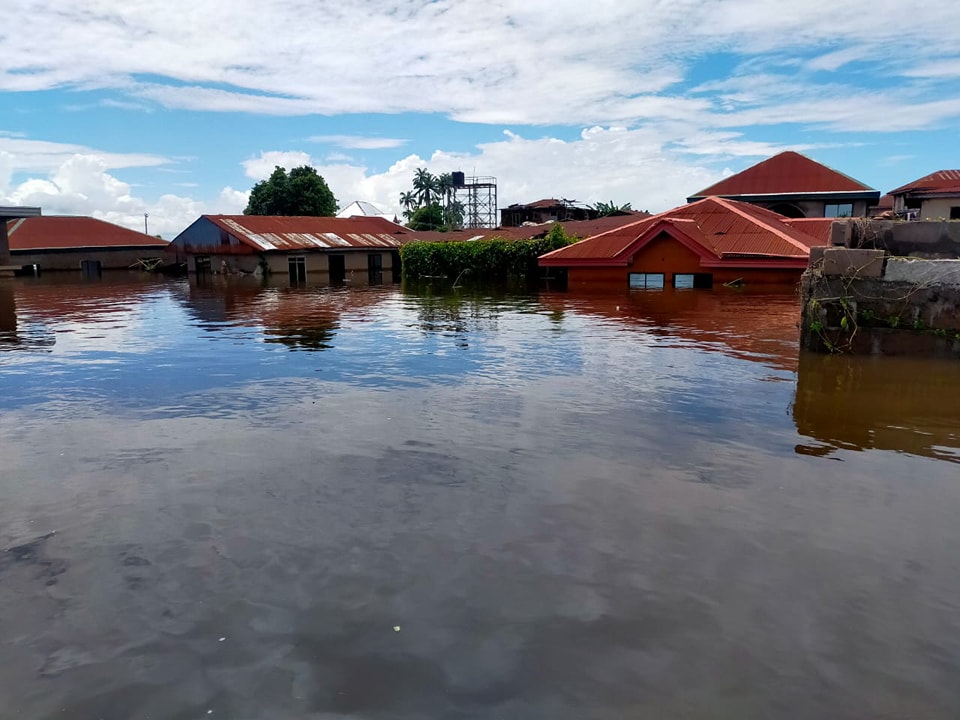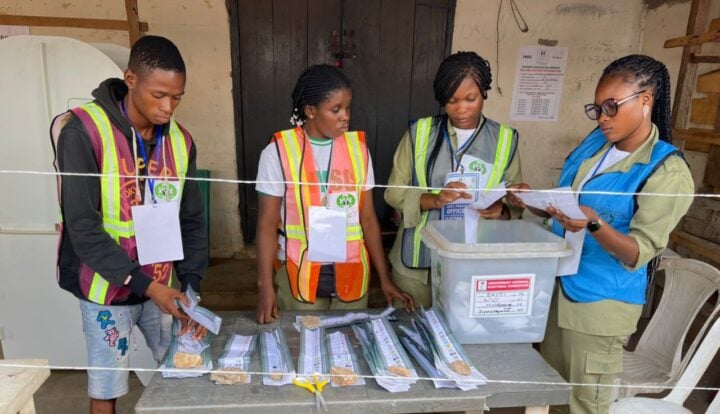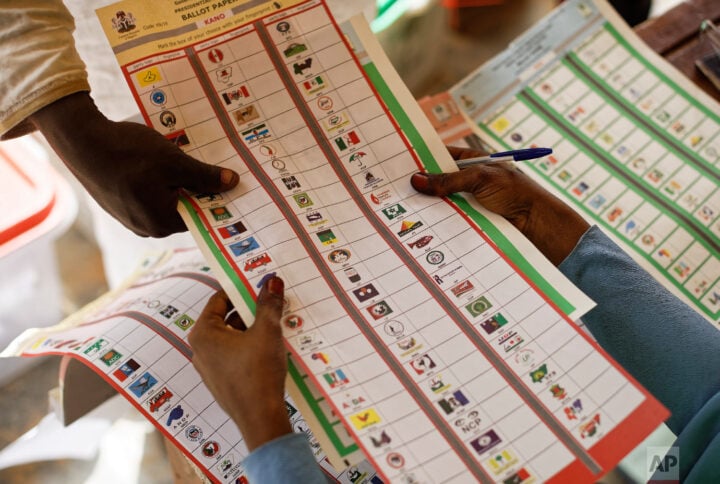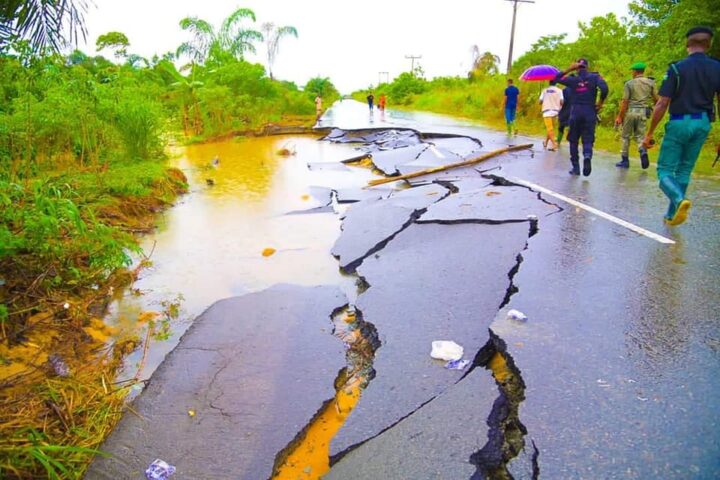Nigeria is facing its worst flooding in a decade with 27 states out of 36 facing a disaster that national emergency authorities have described as “beyond control”. So far, over 200 people have died and over 100,000 have been displaced. Communities along the Niger and Benue rivers are most impacted. The flooding has been linked to heavy rainfalls and the overflow of local rivers, but most consequentially to the release of excess water from the Lagdo Dam in northern Cameroon. The floods have caused severe disruption and as farmlands across these food-producing states are now submerged, the risk of food insecurity is heightened on a scale never seen before with the near absence of a coordinated emergency response from relevant government agencies to this drawback.
Nigeria’s flood crisis has been disastrous this year, killing at least 300 people and affecting more than half a million people, according to the National Emergency Management Agency (NEMA). NEMA warned of more catastrophic flooding for states located along the courses of rivers Niger and Benue, explaining that three of Nigeria’s overfilled reservoirs were expected to overflow.
According to NEMA, the release of excess water from the Lagdo dam in neighbouring Cameroon was bound to “complicate” Nigeria’s already disastrous flood crisis.
“The Lagdo dam operators in the Republic of Cameroon have commenced the release of excess water from the reservoir by September 13, 2022. We are aware that the released water cascades down to Nigeria through River Benue and its tributaries thereby inundating communities that have already been impacted by heavy precipitation,” NEMA said in a terse press statement on September 19.
Advertisement
“The released water complicates the situation further downstream as Nigeria’s inland reservoirs … are also expected to overflow between now and October ending,” it stated, adding that: “This will have serious consequences on frontline states and communities along the courses of rivers Niger and Benue”.
Kogi and Anambra were among 13 Nigerian states predicted to be overrun by “the combined waters of rivers Niger and Benue as they empty into the region,” NEMA said.
Many communities in Kogi, Kwara, Edo, Jigawa, Kano, Benue, Niger, Nasarawa, Taraba, and Borno amongst others are now underwater.
Advertisement
The recurring decimal is herein is where the much-needed intervention of MDAs such as the Ministry of Humanitarian Affairs, Disaster Management and Social Development, Nigeria Hydrological Services Agency (NIHSA), NEMA, and National Inland Waterways Agency (NIWA) amongst others. Save for the presence of odd locally manufactured canoes that dot the flooded landscapes there are no integrated emergency response initiatives to provide relief materials to internally displaced persons so far.
It’s not far-fetched if the president and C-in-C order the Nigeria Navy to take charge of civilian efforts to mitigate this disaster that has affected the supply chain, food security, energy security, transport infrastructure touch points that affect the livelihoods of all and sundry. Lest this author is accused of solely the blame of this natural disaster on the hands of the number one citizen of our dear nation. It’s a case of “force majeure” that can be addressed if the requisite buffers are put in place.
Rather than the engagement in futile efforts of playing the blame game at the root cause of this disaster. It calls for engineering action to address this occurrence now and in the future. Who says it will not reoccur? We don’t need to wait for another doomsday prediction from National Meteorological Institute before we wear our thinking caps.
Mr President now is the time to bang the mahogany-hued table in the Oval Office in the precincts of the Aso Rock Villa and call public servants to deliver on their official premise and mandate. Nigerian lives and all lives matter. Earlier, Olam Nigeria — one of the largest agricultural conglomerates in sub-Saharan Africa announced that the price of rice would go up in December as all their rice yields were swept away by the flooding in Rukubi, Nasarawa state.
Advertisement
As it is, for now, the situation is bleak and there’s no light at the end of the tunnel. The sight of submerged buildings and homesteads leaves a sad taste in one’s mouth. The sight of stranded livestock in trucks amidst flooded roads with attendant deaths of the poor animals thanks to exhaustion and lack of food paints such a horrific picture of the current scheme of affairs.
Views expressed by contributors are strictly personal and not of TheCable.







